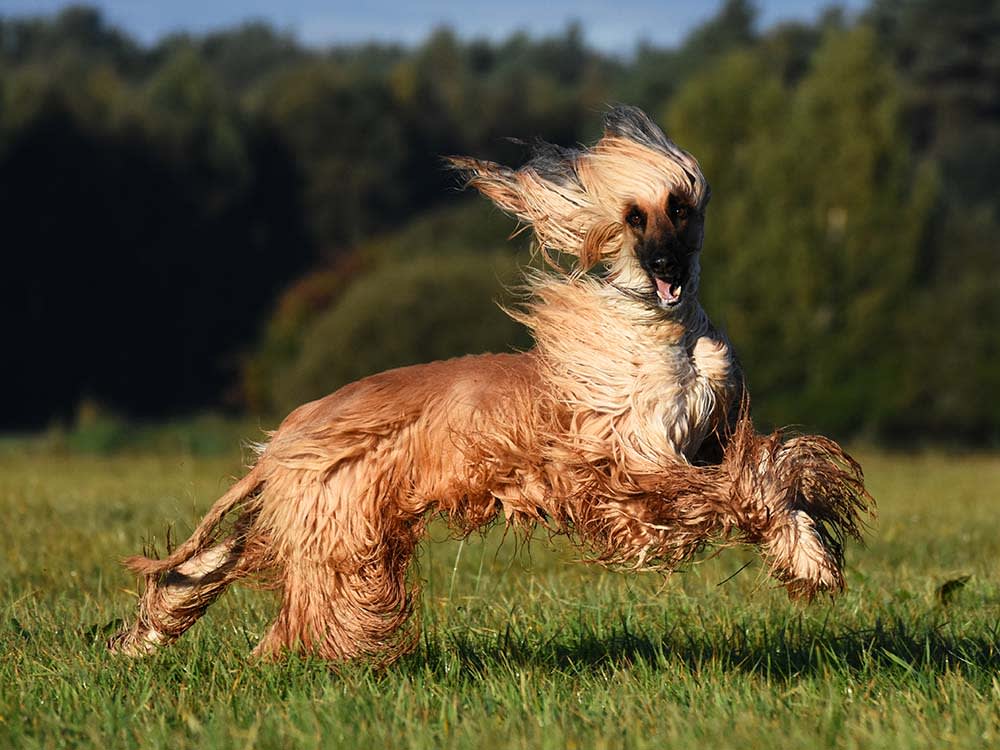Why Is My Dog Hyper At Night?
Is your dog getting zoomies at night? Here are some tips to manage their hyperactivity.
Is your dog getting zoomies at night? Here are some tips to manage their hyperactivity.
by Kelly Villa, | July 30, 2024

Boris Jovanovic / Stocksy
So many pet parents have been there: After a long day, you’re ready for sleep, but your dog is suddenly hyper at night. But why? We’ve got the answers — and suggestions for how to prevent that hyperactivity and manage it when it happens.
There are a few main causes of hyperactivity at night, including:
Different sleep schedules. Dogs do not have the same sleep schedules as humans. While most of us work during the day, our dogs tend to sleep on and off (as any pet parent who works from home or has a camera monitoring their dog knows well). Therefore, they may have periods of hyperactivity at night as well as during various parts of the day.
Age and breed. Especially if your dog is a puppy or a generally hyper breed (such as a working breed like an Australian Shepherd or Border Collie), it’s likely your dog is hyper at many points during the day — and it’s possible you’re just most attuned to it or present to witness it at night.
Lack of mental and physical stimulation. No matter their age or breed, all dogs must receive mental and physical stimulation. Hyperactivity can be a response to boredom. If your dog is understimulated during the day, they’ll likely try to achieve that stimulation at night.
Stress relief. You may notice that your dog’s hyperactivity takes the form of “frenetic random activity periods” (FRAPs), known to many dog parents and lovers as “zoomies,” at night. Experts believe FRAPs help animals relieve stress and let out stored up energy, so if your dog has zoomies at night, they could be trying to get out all their energy before sleeping or relieving the stress of their day.

If your dog loses their sh*t over anything—from a squirrel to a guest. Here are some tips to curtail that.
The best way to help reduce hyperactivity is to avoid it in the first place by providing your dog with plenty of mental and physical stimulation during the day. But if your dog (especially if they’re a puppy) wants to play at night anyway, there are a few key ways you can calm them down, including:
Training. Working on cues that will help redirect a hyper dog’s attention (such as sit, come, down, and stay) can help interrupt your dog’s activity and help them focus on a command. You can practice this during their normal play time so they’re attuned to the process during unplanned zoomies, and also work on relaxation techniques, such as cueing your dog to lie down and pet them to relax them.
Reinforce that training with treats. When your dog successfully remains calm in situations that would normally cause them to respond with hyperactivity, make sure to reinforce their behavior with a high-value treat.
Stay calm yourself. Especially when you’re engaging in an activity that usually excites your dog — such as coming home, picking up their leash, or putting food in their bowl — make sure you’re calm. You can also practice these cues; picking up the leash and putting it down again when it’s not time for a walk, for example, can help desensitize your dog to the action so that it doesn’t cause a burst of hyperactivity every time.

Kelly Villa is a freelance writer and contributor to various pet publications.

Behavior & Training

Behavior & Training

Behavior & Training

Adoption Advice
Considering dog adoption? Learn the differences between adult dog and puppy adoption to find your perfect match.


Behavior & Training